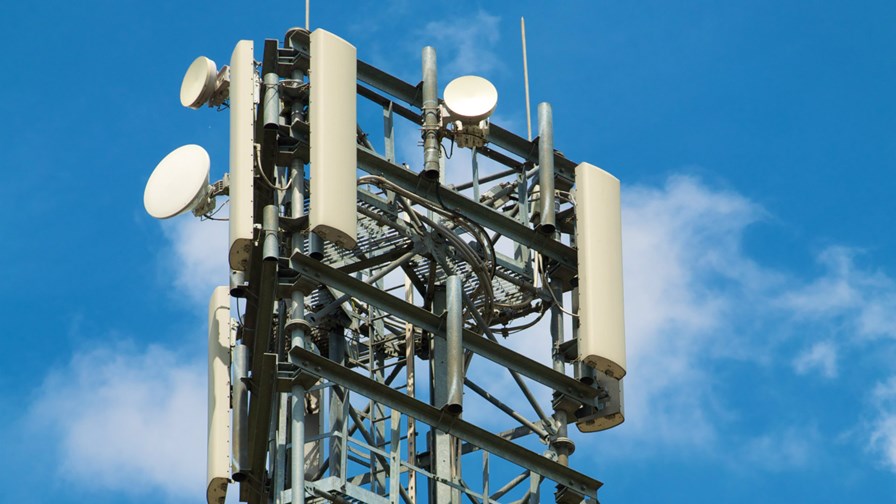
via Flickr © Pug50 (CC BY 2.0)
- The Wi-Fi/public spectrum v. licensed spectrum tug of war is back
- One side says making the full 6GHz band public is too much of a good thing
- Wi-Fi advocates say there is an overwhelming case for giving Wi-Fi some more elbow room
There’s another fight breaking out over the allocation of spectrum in the US, just as the industry needs to dial back the old commercial rivalries and cooperate. Not that the allocation of the 6GHz band, which is being contemplated by the FCC, will in any way affect the ‘immediate’ state of spectrum abundance (or not) and ease potential congestion during the pandemic.
But this kerfuffle does show that we still have a strand of thought in telecoms which views other network players as rivals out to upend the telecoms industry and unleash a ‘race to the bottom’ for spectrum economics. We have another strand which sees differently enabled players as complementary and set to expand the entire market for everyone’s betterment.
We’re talking about Wi-Fi and whether it is a telecoms friend or foe.
This was an old battle which many thought was probably over and done with, the latest version of Wi-Fi being increasingly seen as a complementary feeder technology to handle the indoor 5G portion. But apparently, no.
The mobile telco case
The US telco body, the CTIA, (the Voice of America’s wireless industry) has been blogging through March with a set of techno partisan arguments against the possibility that the FCC would define the full 6GHz spectrum band as shared public spectrum (de facto Wi-Fi).
Its Vice President of Technology and Spectrum Planning, Doug Hyslop, sees a plot by cable companies, Google and Facebook who, he says, are demanding that they be given all 1200 MHz of the band “for free”, thus capitalising on the fact that Google and Facebook (Apple and Amazon have been left out this time) are not flavour of the month in the US (or indeed in Europe). See the full argument here.
Doug takes issue with the way the companies have presented busy hour data to policymakers and that they claim their stewardship of the band won’t endanger existing users.
“Cable, Facebook and Google are also hoping policymakers turn a blind eye to the unlicensed spectrum made available by the FCC that they have simply chosen not to invest in.
“In just the last few years the FCC has released roughly 30 gigahertz of new unlicensed spectrum. Yet, as they tell it, Cable, Facebook and Google haven’t gotten any new unlicensed spectrum in decades. Not exactly: Wi-Fi has simply chosen not to invest in any new bands in decades.
“In our view, freeing up the lower 600 megahertz of 6 GHz for unlicensed use should be celebrated. The U.S. would be a runaway global leader and first mover on next-generation Wi-Fi. As long as incumbents are truly protected, that is a win-win-win scenario.
But Cable, Google and Facebook aren’t stopping there. They won’t settle for less than doubling that. This is contrary to international consensus and in the midst of a 5G mid-band licensed spectrum deficit. They’re demanding the full 1200 megahertz.”
There’s the rub. The CTIA wants the spectrum to be auctioned off for 5G, rather than made public so that any individual, or indeed telco, could theoretically use it.
In another blog, this time by Kara Graves, Assistant Vice President, Regulatory Affairs,(https://www.ctia.org/news/blog-global-consensus-is-against-6-ghz-giveaway) the argument is extended. Karen asserts that ”no other country is contemplating giving away all 1,200 megahertz of the 6 GHz band for Wi-Fi, she says, while Cable, Facebook, and Google are demanding more than double that.
The Wi-Fi response
Naturally, Wi-Fi advocates such as Claus Hetting, CEO & Chairman Wi-Fi NOW, ever so slightly disagrees with this.
“First of all, it’s absurd to use the phrase ‘give away’ - it’s meaningless since it assumes that all spectrum somehow should be sold, which is of course not true,” he says.
“Wi-Fi is by far the most successful wireless technology of all time no matter how you measure it and it would not have happened without the allocation of unlicensed spectrum, of course.
“Secondly, the mention of ‘Cable, Facebook, & Google’ seems to indicate some sort of conspiracy - which is also misleading and false.
“The consortium of tech giants working in favour of full 6 GHz allocation includes Apple, Broadcom, Amazon, Microsoft, and many others,” he says, including public interest groups who are keen that more spectrum be made available to help close the digital divide.
“The reason why 1.2 GHz of band is considered in the US for unlicensed use is because early tests and calculations showed that it is indeed possible to use this spectrum for Wi-Fi without interfering with incumbents.” Claus says, adding that there are many studies which show this is the case.
However Claus’s clinching argument is that the only reason European countries aren’t considering releasing the full band to Wi-Fi is simply that the upper part of the 6GHz band is not available in those countries as it’s already in use.
************************************We want to hear from you!
Take part in our 5G and Security survey and receive a free copy of the downloadable report ahead of general release.
Email Newsletters
Sign up to receive TelecomTV's top news and videos, plus exclusive subscriber-only content direct to your inbox.




